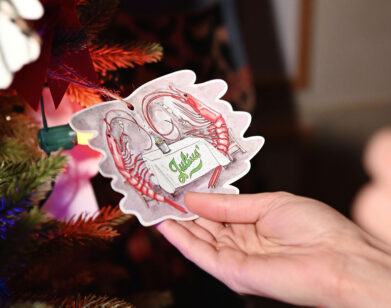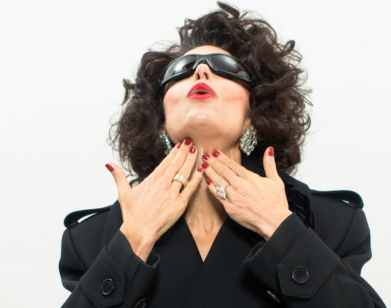On the Couch with ‘The Family Stone’

The therapist and the film critic occupy a similar space in the culture. The latter cracks open the fundamental truths of our popular cinema; the former, of ourselves. For our series On the Couch, we ask New York therapists to pick the brains of the characters within their favorite films.
Clinical psychologist Dr. Justyna Zapolska’s favorite holiday film is “The Family Stone” — an underrated yet increasingly appreciated Sarah Jessica Parker-led Christmas classic that’s brimming with insults, mishaps, and unhappiness. Beneath the simple tale of an urbanite princess who goes head-to-head with her boyfriend’s touchy-feely family on their first Christmas spent together, Zapolska argues, lie more subtle messages about familial acceptance and the pursuit of self-identity.
———
“You have a freak flag, you just don’t fly it.” Imagine hearing this from your future brother-in-law — a few hours after meeting your potential new family on your first Christmas spent together. That’s what Ben, played by Luke Wilson, tells Sarah Jessica Parker’s Meredith, the uptight, rigid, controlling, prim and proper, stiletto-wearing b-witch of The Family Stone. Or hearing: “Don’t dilly dally there pretty lady. We will all be down here talking about you.” (Ben says that, too). And these don’t even compare to the behind-closed-doors comments Meredith is not privy to from the entire family. She crumbles under the pressure, moving into a nearby hotel for the remainder of the holiday and inviting her younger sister to come serve as a buffer.
On the surface, the movie is deceptively simplistic — another uptight urbanite princess that can’t get along with a crunchy, touchy-feely family, both destined to suffer a disastrous Christmas filled with personal insults, mishaps, and unhappiness. This is all both funny and deeply disturbing to us as viewers, who can empathize with various characters as they’re criticized, rejected, and even tormented by the people they’re forced to spend the holidays with. For those of us whose family dynamics mirror those in the movie, we shutter at the images of the intrusive mother, the mean little sister, the insufficiently involved father, and the boyfriend that starts a strange flirtation with our younger sister.
But the movie forces us to reflect on a deeper question: Does the explicit content of the verbal communication matter, or does the underlying intention — loving or hateful — need to be factored in? Meredith is clueless and vindictive; her dialogue throughout suggests a lack of acceptance of difference, the antithesis of the wide range of “otherness” the Stone family embraces. Nevertheless, Ben sees something in Meredith. His “freak flag” comment, seemingly an insult, implies that she is hiding something, not only from others, but also from herself. Her uptightness covers up something that is wilder and more real, something Meredith is fundamentally afraid of. Ben suggests the family will accept Meredith, despite or maybe even because of her “freak flag.” Somehow, Meredith manages to hear him; the comment leads her to loosen up and eventually figure out that she is dating the wrong man — someone who facilitates her hiding of the “freak flag,” rather than insisting she fly it.
We all like to think we are the loving ones, while the “others” are the ones spreading hate. But we’re all capable of both. Ben spends most of the movie trying to connect with Meredith, even when others are working hard to push her out of their home. Meredith is very clear about her disapproval of the Stones’ lifestyle, but she’s also the one that brings the most meaningful gift for everyone: an enlarged old photo of their mother, pregnant with what turns out to be her youngest child. “You did good,” she says to Meredith, with tears in her eyes.
Family dynamics are among the most complex, but also clarifying, relationships of all. They’re where our personal dramas get played out, where we witness the full range of our emotions. Family may be “all we have,” as the mother says, but the good news is that we have multiple opportunities throughout our lives to be part of different families. If we allow ourselves to connect to deeply buried feelings and needs, and not simply get caught up with what appears on the surface, we may, like Meredith, find ourselves changing in ways that are surprising, but represent a more honest image of who we truly are.
Justyna Zapolska, PhD is a clinical psychologist who helps her patients explore and overcome lifelong patterns that may prevent them from capitalizing on their potential. She has a private practice in Flatiron, where she sees individuals as well as couples and families. Zapolska also teaches clinical theory courses to graduate students of Forensic Mental Health Counseling at the John Jay College of Criminal Justice, and serves as the Director of Mental Health Family Medicine at NYU Langone – Brooklyn Hospital, where she discusses doctor-patient dynamics and diagnosing mental health concerns with family medicine residents.






